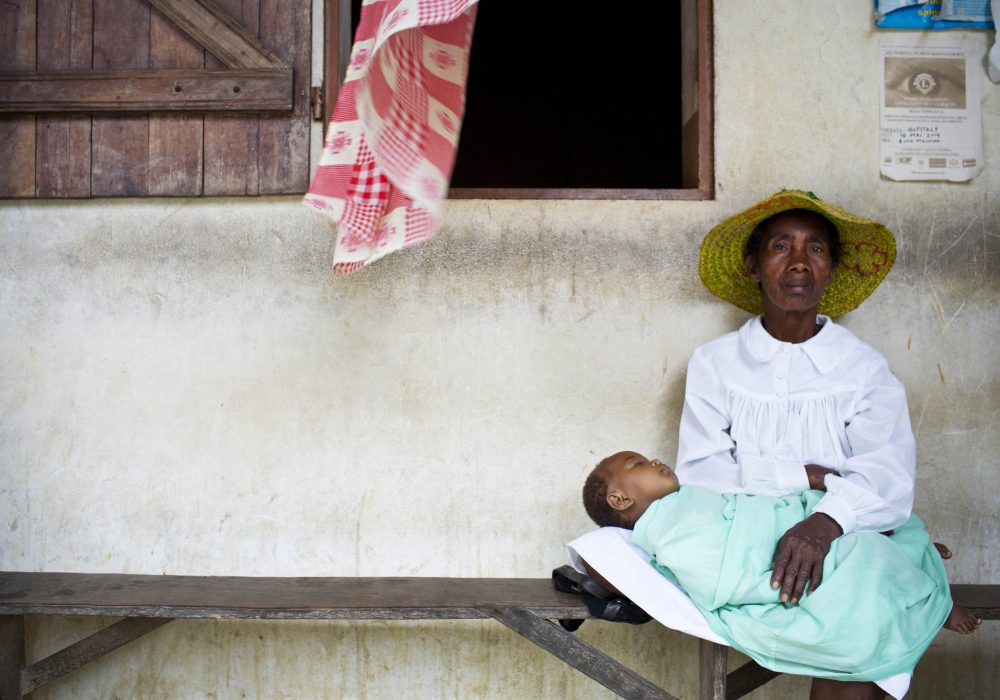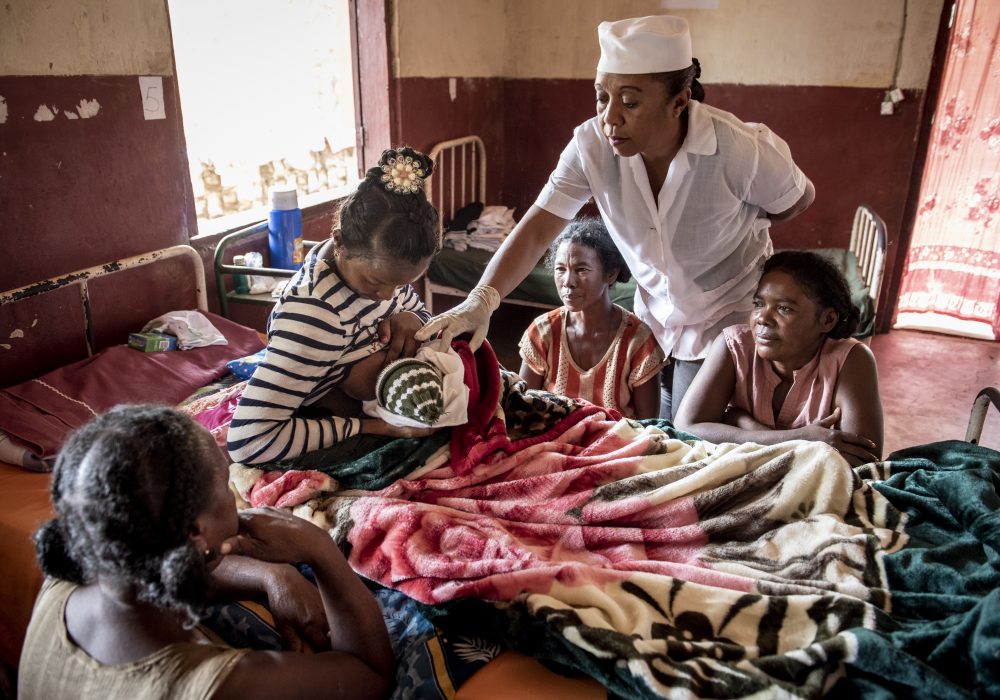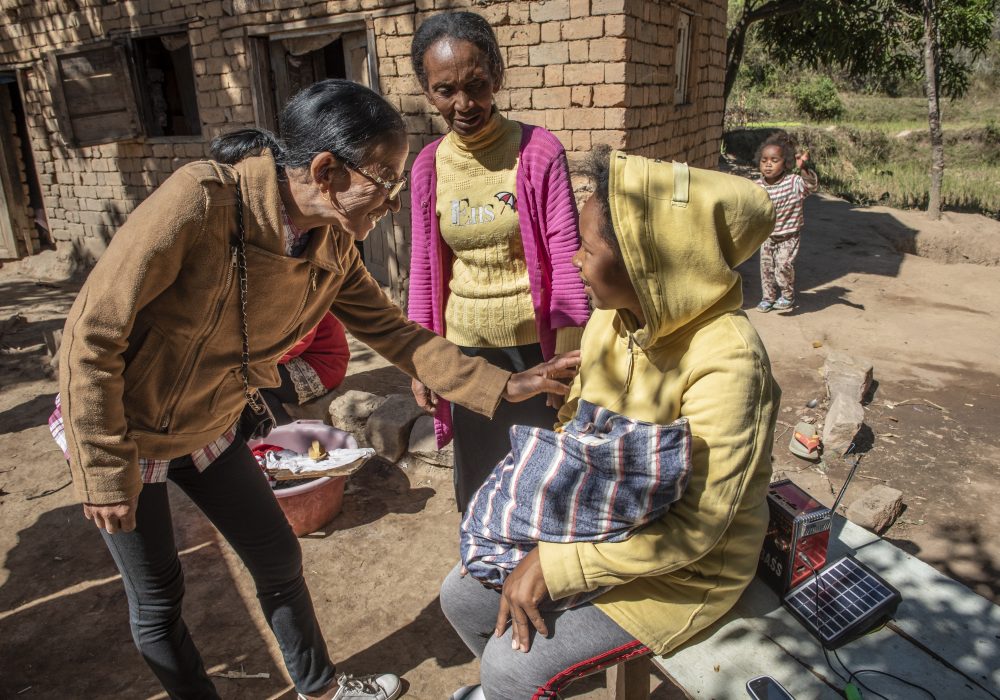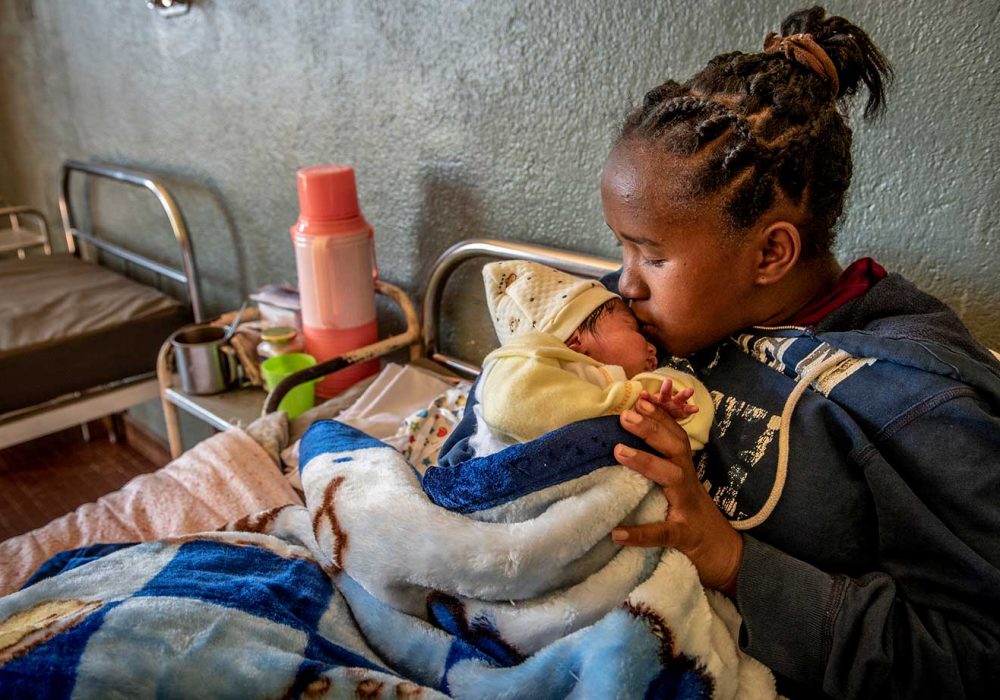Madagascar


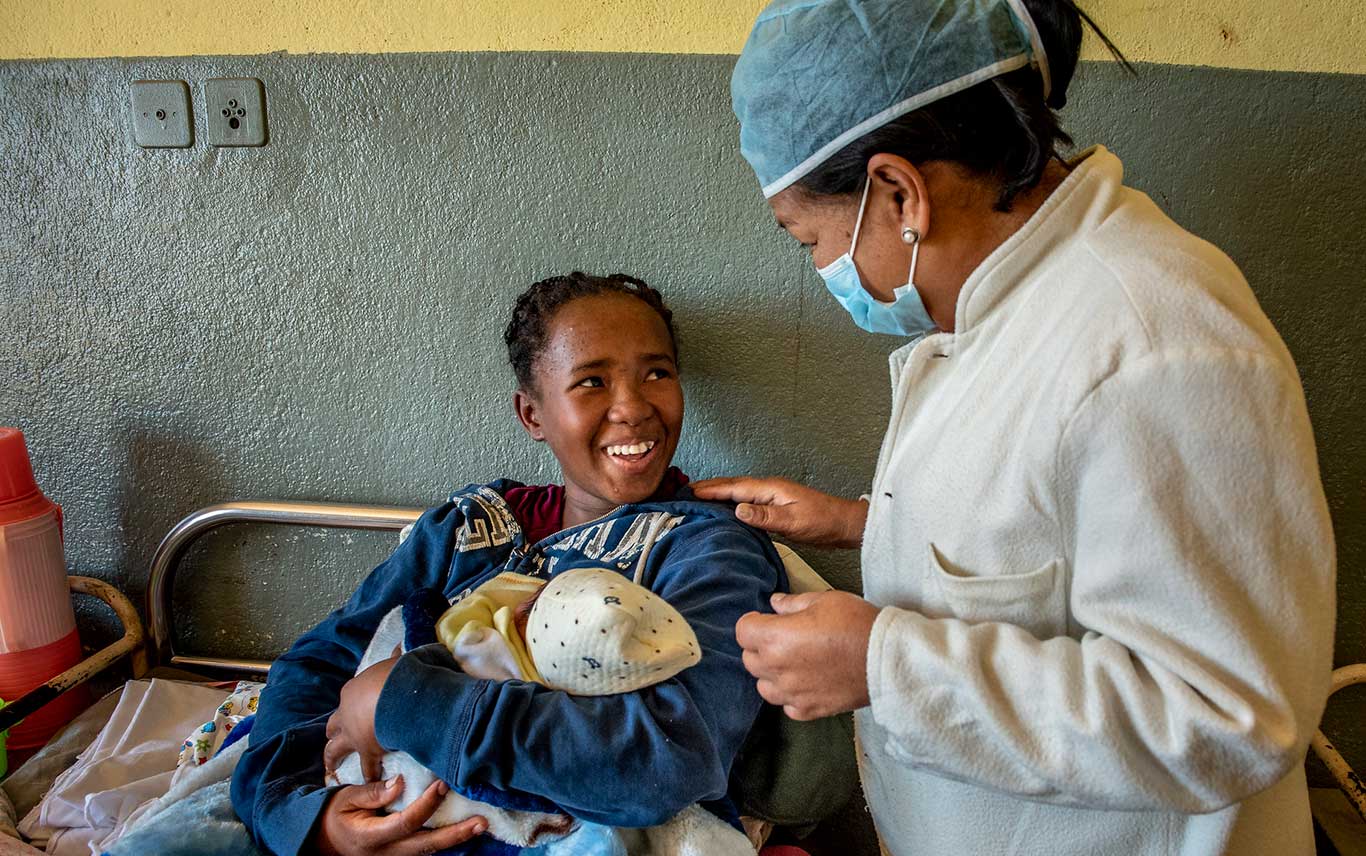
Country Contact
Andritahina Razafiarijaona, Jhpiego Country Director
Tel. 261 2022 31 220
Immeuble Santa Lot II, 3rd Floor Antanimena
Antananarivo, Madagascar
Current and Recent Donors
Unitaid
USAID
World Bank/Unité de Programme National de Nutrition Communautaire
Working to keep women and their children healthy since 2003.
- Community intermittent preventive treatment of malaria in pregnancy (IPTp) is contributing to increases in IPTp coverage, giving pregnant women more opportunities to receive malaria protection and comprehensive care in pregnancy. Over the five-year TIPTOP project, the percentage of pregnant women in three Jhpiego-supported districts who received three doses of IPTp increased from 27.9% to 74.9%. Also, four-antenatal-care-visit coverage increased from 44.8% to 66.2% due to establishment of strong referral systems between communities and facilities and engagement of civil society organizations.
- Under the MOMENTUM Country and Global Leadership project, Jhpiego supported 100 private health facilities to offer COVID-19 vaccination services through fixed sites and outreach services. Between September 2022 and September 2023, more than 70,000 people were completely vaccinated. The project is ongoing to continue to reach communities with COVID-19 vaccination, including booster, and integrating availability with routine immunization services.
- MOMENTUM also supported Madagascar’s Ministry of Health to improve partner coordination for reproductive, maternal, newborn and child health services, including updating policy and procedure documents and job aids, including a 2023–2027 Roadmap for the Campaign to Accelerate the Reduction of Maternal and Newborn Mortality in Africa.
- Through the MOMENTUM Safe Surgery in Family Planning and Obstetrics award, Jhpiego strengthened the capacity of surgical teams at three sites to offer safe cesarean delivery services and developed a mentorship program to build capacity for safe, respectful and client-centered obstetric surgery.
Our Work in Madagascar
MOMENTUM Country and Global Leadership
Moving Integrated, Quality Maternal, Newborn and Child Health and Family Planning and Reproductive Health Services to Scale (MOMENTUM) is a suite of projects, funded by the U.S. Agency for International Development, that aims to accelerate reductions in maternal, newborn and child mortality and morbidity in high-burden countries by increasing host country commitment and capacity to provide high-quality, integrated health care. Each of the projects has a specific focus area; together they provide a comprehensive, flexible package of support for countries as they overcome context-specific health challenges towards sustainable development. The six-year, Jhpiego-led MOMENTUM Country and Global Leadership project focuses on: 1) providing targeted technical and capacity development assistance to our missions, partner countries and local organizations; and 2) contributing to global technical leadership and policy dialogue for improved maternal, newborn and child health, voluntary family planning and reproductive health outcomes. Jhpiego’s sub-partners under this project are: Save the Children, Johns Hopkins University International Vaccine Access Center, Quicksand, Matchboxology, BAO Systems, Avenir Health, McKinsey and Company, PACT, Institute for Healthcare Improvement, Christian Connections for International Health and Ubora Quality Institute.
MOMENTUM Safe Surgery in Family Planning and Obstetrics
Jhpiego is working in Madagascar to strengthen the capacity of health care workers and mentors to provide safe and humane obstetric surgery to support the implementation of the World Health Organization’s Safe Surgery checklist and evidence-based updates. The project is also providing support to: 1) the Ministry of Health in updating the national strategies and norms and standards for reproductive health; and 2) local professional societies and associations (e.g., gynecologists-obstetricians, surgeons and midwives) to optimize appropriate caesarean sections. This work is being carried out through a subcontract with IntraHealth under the MOMENTUM Safe Surgery in Family Planning and Obstetrics project.
Country Contact
Andritahina Razafiarijaona, Jhpiego Country Director
Tel. 261 2022 31 220
Immeuble Santa Lot II, 3rd Floor Antanimena
Antananarivo, Madagascar
Current and Recent Donors
Unitaid
USAID
World Bank/Unité de Programme National de Nutrition Communautaire




